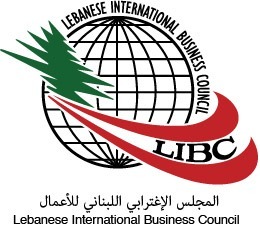Employee Loyalty in the MENA Region Poll: 79.4% are loyal to their current company
When it comes to success indicators that companies look for, employee loyalty is among the most prominent.
According to a new poll by Bayt.com, the Middle East’s #1 job site, titled ‘Employee Loyalty in the Middle East and North Africa’: more than three quarters (76.6%) of respondents agree that their managers are interested in having loyal employees. Nearly nine in 10 respondents said that loyalty is tied to productivity. Moreover, respondents said that the top benefits of employee loyalty include higher efficiency (32.1%), stronger team relationships (30.8%), and higher employee satisfaction (25.3%).
Employee Loyalty in the Middle East
In the Middle East, high employee engagement and loyalty are consistent. More than nine in ten (91%) respondents agree that they are highly engaged at work, with half (50.1%) strongly agreeing. Further, more than three quarters (79.4%) of poll takers say that they are very loyal or extremely loyal to their current company, and more than half (55.3%) agree that they are satisfied with the company they work at.
According to the Bayt.com poll, employee loyalty means maintaining the company confidentiality even after resigning (33.3%), being dedicated and abiding to the company’s values and rules (30.3%), being proactive and invested in promoting the company’s vision (25.3%) and staying with the company for many years (11.1%).
What Influences Employee Loyalty
When it comes to factors influencing employee loyalty, respondents cited salary (28%), top management (19.1%), compensation and benefits (19.2%), team members (17.4%), and direct managers (16.3%). When asked specifically about office environments as a loyalty factor, the overwhelming majority (83.2%) of respondents in the MENA said that it is important.
In order to increase employee loyalty, respondents said employers should treat all employees equally and fairly (22.4%), reward employees for their achievements (21.9%), and help them achieve work-life balance (18.1%). Four in ten (40.6%) respondents believe that for better employee loyalty, management should listen to and align employees’ goals with company goals, and another quarter (25.7%) believe that management should help employees understand the company’s mission and values.
Conversely, according to respondents, what is likely to damage employee loyalty the most is a lack of promotions and career development (38.2%) and low salaries (28.2%), followed by unfair division of work and responsibilities (22.1%) and biased or subjective feedback (11.6%).
“Employers in the Middle East and North Africa should be well aware that granting opportunities for growth and advancement and truly listening to what matters to the employee are among the best ways to win their loyalty and support,” said Suhail Masri, Vice President of Employer Solutions at Bayt.com, Bayt.com.
“We are not simply talking about retention here. Employee loyalty is parallel to dedication, trustworthiness, and positive work ethics. Targeting loyalty plays a central role in furthering the success strategy of any organization or company, regardless of size and activity sector. At Bayt.com, we recommend and empower employers to utilize Bayt.com’s online learning portal for training and enhancing their employee’s potential.”
Data for the 2016 Bayt.com ‘Employee Loyalty in the Middle East and North Africa’ poll was collected online from November 4, 2016 to December 10, 2016. Results are based on a sample of 8,223 respondents. Countries that participated are the UAE, Algeria, Egypt, Jordan, Kuwait, Lebanon, Morocco, Oman, Tunisia, Qatar, KSA, Yemen, and Others.




Comments are closed, but trackbacks and pingbacks are open.